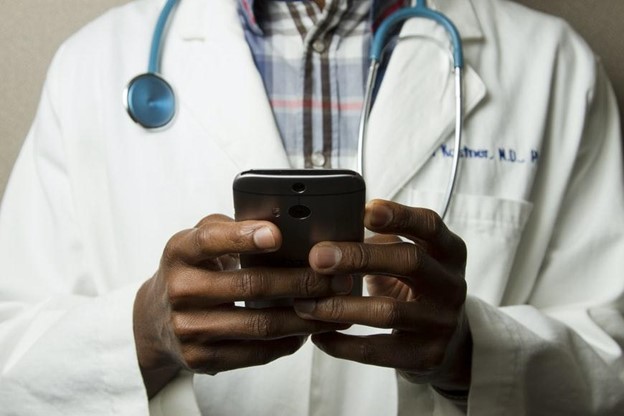It’s day seven of the Russian invasion of Ukraine as its residents continue to defend their homeland against military aggression. Ordinary citizens are picking up firearms and the country’s capital city has become a warzone.
Healthcare workers in Ukraine are trying to carry out their duties as their community descends in chaos. Marina Kalabina, a doctor at the Centre for Pediatric Cardiology and Cardiac Surgery, was shot by Russian soldiers while she was driving her nephew to a hospital in the village of Kukhari in Kyiv.
Ukraine’s Minister of Healthcare Viktor Liashko shared the news on Facebook. “Today Russian terrorists took the life of a doctor – Marina Kalabina,” he wrote next to a picture of her. “These are non-humans, terrorists, and this should definitely not go unpunished!” he added. “We will not forgive you.”
Laishko, who is a doctor himself, has been urging healthcare providers all over the world to condemn the violence in Ukraine as Russia begins to ramp up its assault against the capital city.
Ukrainian Defense Secretary Ben Wallace said the Russians are shifting away from ground-level combat to “heavy bombardments” with the potential “carpet-bombing of cities”.
Ukrainian government officials say more than 2,000 civilians have died in the week since Russia invaded the country, although independent sources have not been able to confirm these figures at this time.
Protecting Nurses in Ukraine
The International Council of Nurses (ICN) is raising the alarm over what’s happening in Ukraine. The organization recently put out a statement that says its more 130 members stand in solidarity with the people, nurses, and all healthcare workers caught up in the conflict in Ukraine.
The ICN says the protection of healthcare workers should be paramount during this time and any attack targeting health workers or health facilities goes against international regulations and the Geneva Convention and should be considered an affront against humanity.
The organization says it has been in contact with its colleagues on the ground in Ukraine.
ICN President Pamela Cipriano said, “We are extremely concerned about the situation in Ukraine and our hearts go out to all the people caught up in the conflict, including our nurses and all health workers who once again find themselves on the frontlines of another humanitarian crisis. Access to healthcare and the delivery of humanitarian assistance must remain a priority for all concerned as we see cities under attack and tens of thousands of people being displaced.”
National Nursing Associations from all over the world have sent messages of support to the nurses being affected by the conflict.
Valentina Sarkisova, President of the Russian Nurses Association, said, “Politics is far from nursing, and armed conflicts are opposite to the main designation of our profession. There are no other professions that cherish life and health as much as nurses. Together with the whole world, we hope for a rapid resolution of all conflicts and a return to a normal and peaceful life. We do believe that no political confrontation can affect the mission of nursing. With all the passion we wish no more lives be lost, and all nurses be back to their peaceful duties in safe and secure environment.”
Multiple countries along with the World Health Organization are sending supplies to the area to help the providers working on the ground. The WHO says its first shipment will arrive in neighboring Poland on Thursday. It is calling on officials to create a humanitarian corridor that can be used to send supplies to those in need.
WHO Director-General Tedros Adhanom Ghebreyesus said the shipment includes 40 U.S. tons of supplies for trauma care and emergency surgery to help 1,000 patients as well as other supplies to meet the needs of 150,000 people.
“There is an urgent need to establish a corridor to ensure humanitarian workers and supplies have safe and continuous access to reach people in need,” Tedros said.
Getting supplies into Kyiv where most of the fighting is taking place has been difficult.
Dr. Jarno Habicht, the WHO representative in Ukraine, said it was “difficult to find drivers” to transport supplies. The agency said some of the supplies include treatment for noncommunicable diseases, insulin, and hypertension medication, as well as things like tetanus antitoxin.
WHO emergencies chief, Dr. Michael Ryan, said other supplies included sutures, skin graft equipment, and “equipment for doing amputations, for bone grafting, for bone wiring…”
“I think this gives you the graphic nature of what’s happening,” Ryan said. “These are ordinary civilians being broken and the health system is going to have to put them back together again.”
Anyone looking to donate to the people of Ukraine can visit WBUR to learn more about the organizations sending supplies.




